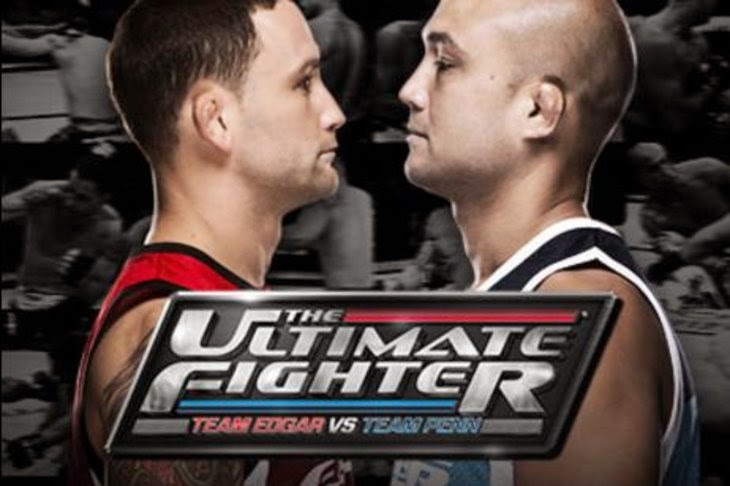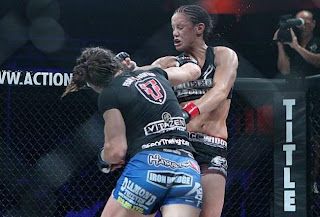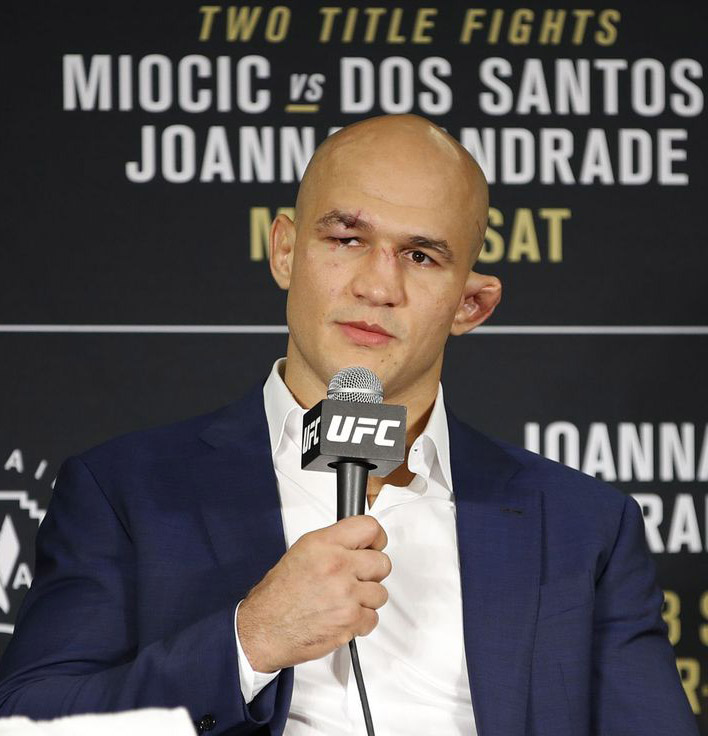 By E. Spencer Kyte (espencerkyte@mmaratings.net)
By E. Spencer Kyte (espencerkyte@mmaratings.net)
With Strikeforce’s long-awaited network television debut tonight, the mainstream media will be turning their often-occluded eye towards Mixed Martial Arts.
So too will millions of viewers, some long-time fans flocking at the chance to see the great Fedor Emelianenko fight for free, others in sheer curiosity towards this sport they keep hearing about called MMA.
Over the last few months, a great deal has been made about the potential push of Mixed Martial Arts into the mainstream and tonight’s groundbreaking event opens the door for that discussion once more.
Except this isn’t going to be a discussion of how MMA will make it to the mainstream; this is about why it will never happen and it’s called The Jorge Gurgel Theory.
Let’s get one thing straight: Jorge Gurgel is a terrific athlete, a great fighter and an outstanding performer. Unfortunately, he’s also a terrific example of why Mixed Martial Arts will never ascend to the rarefied air occupied by the NFL, NBA and MLB.
By no means is this meant to diminish his talents, accomplishments or success in the sport or incur the wrath of the always popular “At least he’s man enough to step into the cage and not hide behind a keyboard” advocates.
This is simply a commentary on the progression of the sport, and Gurgel serves as an incredible example.
Jorge Gurgel is a Brazilian jiu jitsu black belt under Marcus Aurelio, though you wouldn’t necessarily know it from his most recent fights and therein lies the basis for this theory.
Despite being supremely talented on the ground, Rich Franklin’s jiu jitsu coach prefers to stand and bang with his opponents. While it has earned him a couple of “Fight of the Night” bonuses from the UFC, it also earned Gurgel his pink slip from the organization.
Before fighting under the bright lights of the Ultimate Fighting Championship, Jorge Gurgel was 9-1 with all nine of his wins coming via submission.
Once the cameras started rolling and the crowds got bigger, the Brazilian jiu jitsu expert shifted gears, fighting more for the excitement and enjoyment of the fans, forsaking his acumen on the ground in favor of the stand-up battles that draw the biggest cheers.
Since his appearance on Season 2 of The Ultimate Fighter, Gurgel is 4-5 with all but one of those fights going to the judges scorecards. The one-time submission specialist has become a boxer, choosing the cheers and a coin-flip over jeers and a victory on the ground.
While there can be no guarantee that Gurgel would have won any or all of the five fights he’s lost since entering and subsequently being released from the UFC, one would have to believe that an accomplished Brazilian jiu jitsu black belt stands a better chance using those talents than he does trading punches.
The pinnacle of the paradox is best illustrated by Gurgel’s fight at UFC 91 with Aaron Riley.
On a card that also featured Brock Lesnar’s heavyweight title win over Randy Couture, it was Gurgel and Riley who took home Fight of the Night honors for the 15 minute battle that saw Riley come away with a Unanimous Decision.
Though Gurgel earned a $60,000 bonus in defeat, he also earned an exit from the company.
Everyone, Dana White included, thought the fight was phenomenal, but the bottom line is that a loss is a loss and winners move on while the loser goes home.
Despite the boos that accompany a fight going to the ground, the cheers that echo each time Jorge Gurgel goes toe-to-toe with an opponent don’t change the fact that he’s lost more than he’s won since switching from submissions to striking.
The fans might like him more, but his employers are the ones he needs to be trying to impress the most.
* * * * *
More football fans are going to tune into a 50-47 shootout than a 10-7 defensive battle, but that doesn’t lead defensively-minded teams to eschew their bread and butter in favor of airing it out and hoping to score more points than the other guy.
While Dave from Fresno probably cheered last night as Gurgel stood up for 15 minutes with Billy Evangelista as the headlining fight on the latest Strikeforce: Challengers series event, hearing boos could have meant a victory for Gurgel.
Instead, the fans kept cheering and he took a loss.
The problem is that right now, a large number of fans are going to boo every time a fight hits the ground, because to them that doesn’t fit the definition of a fight.
Two guys on the ground is wrestling or grappling or boring or hard to understand or difficult to see or the always-popular-with-those-opposed-to-the-sport homoerotic, as if homosexuality is a taboo and unspeakable horror in 2009. Homophobia is so 1986…
A fight is two guys swinging for the fences, trying with every punch to knock the other guy out, and if they are going to grapple, they should do it standing up where there is at least the possibility that one guy slams the other to the ground.
After all, any time Mixed Martial Arts makes an appearance on SportsCenter that’s what they’re showing.
Matt Hughes carrying Frank Trigg across the cage and driving him into the ground.
Chuck Liddell trading blows with a beaten and bloody Wanderlei Silva.
Dan Henderson launching Michael Bisping’s mouthguard back to Britain.
While Anderson Silva’s technical performance in a victory over Thales Leites got panned and little airplay, his first round devastation of Forrest Griffin was in heavy rotation.
Lyoto Machida was viewed as boring before knocking out Thiago Silva at UFC 94, now he’s a household name and pushed as one of the greats of the sport.
For everyone who cheers when Demian Maia drags another opponent into his guard, trapping them like a fly in a spider’s web, there are 20 people booing and hissing, pleading for the fight to be stood back up so someone can catch a fist with their face.
Until it’s not just knockouts and slugfests getting all the applause and attention, Jorge Gurgel is going to remain a boxer who keeps his Brazilian jiu jitsu black belt hanging in the cupboard for safe keeping.
And Mixed Martial Arts will remain on the outside looking in.



